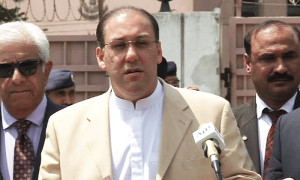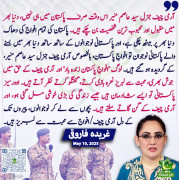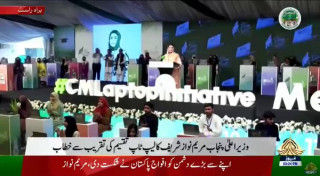G
Guest
Guest
Interviews with Pakistani students: 'I figured this was all a big mistake'
UK Government
Friday, 04 December 2009
When men in combat uniforms grabbed Rizwan Sharif outside a Liverpool university last April, pointing a gun at his head, the Pakistani student thought he was being attacked by terrorists. "I started to recite the Kalima, a prayer that Muslims say before they die," he said.
But Sharif was the suspected terrorist, and his assailants were British police. With the 28-year-old accountancy student pinned to the ground, anti-terrorist officers searched his rucksack for explosives. They pulled out a pile of books, a jar of mayonnaise and a tube of garlic paste. Sharif had a second thought. "I figured 'this is all a big mistake' and they would let me go after a few hours," he said. He was also wrong about that.
Sharif was one of 11 men, 10 of them Pakistani students, arrested as part of the Operation Pathway raids across Liverpool, Manchester and Lancashire. Television footage showed Sharif splayed on the ground outside Liverpool John Moores University, and described him as an al-Qaida suspect.
After 14 days' questioning the police had no evidence against the men and released them without charge. But the Home Office immediately served them with deportation notices, insisting they were terrorists linked to an al-Qaida cell, bent on attacking Britain.
Sharif and nine other students appealed against deportation but were refused bail. So he was sent to Wakefield maximum security prison where, as a Category A prisoner, he shared meals with convicted murders and rapists.
In September, after almost five months in jail, he could take no more, and abandoned his appeal, to return to Karachi. Now he is trying to rebuild his life and understand how his dream of studying in England turned into a nightmare.
"We did absolutely nothing wrong," he said. "They called us terrorists. But the British intelligence was based on assumptions, and assumptions need evidence. They didn't have any. The whole thing is ridiculous."
In interviews across three Pakistani cities, the Guardian spoke to seven of the eight students who have returned home. They say they are the victims of a miscarriage of justice, explaining in detail how their student life was misconstrued as a terrorist plot.
Umer Farooq, a 26-year-old hotel management student, is a keen bodybuilder, wears fake Italian designer clothes and has a reggae ringtone on his phone. Photos on his Facebook page show him in nightclubs with different English women. "Look at me," he said. "Do I look like a terrorist?"
But the Home Office insists Farooq and his nine fellow students are terrorists. In deportation papers the authorities cite a number of incidents including a day trip nine Pakistanis made to the north Wales hills in January.
One photo from the trip, taken from their laptops, showed four barechested students laughing and flexing their muscles. Detectives asked them if it was "commando" training. "Most of the guys had already put these photos and videos on Facebook. If I was a terrorist, why would I put them on Facebook?" said Farooq.
In Peshawar another suspect, 38-year-old Tariq ur Rehman, said he came from a place notorious for its terrorists Miram Shah, on the Afghan border. But Rehman, an educated man, fled to the UK after receiving threats from the Taliban because he worked for an Italian aid agency. "The message came to my family that I was working for the foreigners, and I should stop," he said.
The deportation papers also hinged on two meetings of the students, on 23 March in Liverpool and 1 April in Manchester. The students said they met to eat; deportation papers said they were for "operational activity".
At the heart of the case is an email 23-year-old student Abid Naseer sent to a man named Sohaib, described by Lord Carlile, the independent reviewer of terrorism legislation, as "an al-Qaida source situated overseas", on 3 April.
It said: "My mates are well and my affair with Nadia is soon turning to family life. I met with Nadia family and we both parties have agreed to conduct the Nikkah [Islamic marriage contract] after 15th and before 20th of the month."
MI5 analysts believe this was code for a bomb attack on the UK and that Nadia is a pseudonym for a type of explosive. But several of the students say Naseer was searching for a wife through Muslim marriage websites before the arrests.
A western diplomat in Pakistan insisted British intelligence had "good reason" to suspect the students, and may be reticent to reveal its evidence in order to protect sources.
Naseer's father, Nasrullah Jan, said his son was not afraid to face any secret evidence. "Let him come before a court and face the secret evidence. If he is guilty, then he should be hanged. But if he is not, then for the love of God let him go."
In Peshawar, Janas Khan is back where he started, at his family's secondhand clothes shop amid the smoky din of the Kohati bazaar. A Taliban bomb went off nearby recently, killing more than 120 people. He said his family was crushed by his deportation: he is the only one of 12 children to make it to university. He paid 3,500 in fees, he said, but now lacked the money to complete his course.
He is angry at both the British government and its media. "When they knew we were innocent, the story vanished. The whole thing was bullshit, there was no bomb factory. So why did nobody offer at least an apology?"
Guardian
UK Government
Friday, 04 December 2009
When men in combat uniforms grabbed Rizwan Sharif outside a Liverpool university last April, pointing a gun at his head, the Pakistani student thought he was being attacked by terrorists. "I started to recite the Kalima, a prayer that Muslims say before they die," he said.
But Sharif was the suspected terrorist, and his assailants were British police. With the 28-year-old accountancy student pinned to the ground, anti-terrorist officers searched his rucksack for explosives. They pulled out a pile of books, a jar of mayonnaise and a tube of garlic paste. Sharif had a second thought. "I figured 'this is all a big mistake' and they would let me go after a few hours," he said. He was also wrong about that.
Sharif was one of 11 men, 10 of them Pakistani students, arrested as part of the Operation Pathway raids across Liverpool, Manchester and Lancashire. Television footage showed Sharif splayed on the ground outside Liverpool John Moores University, and described him as an al-Qaida suspect.
After 14 days' questioning the police had no evidence against the men and released them without charge. But the Home Office immediately served them with deportation notices, insisting they were terrorists linked to an al-Qaida cell, bent on attacking Britain.
Sharif and nine other students appealed against deportation but were refused bail. So he was sent to Wakefield maximum security prison where, as a Category A prisoner, he shared meals with convicted murders and rapists.
In September, after almost five months in jail, he could take no more, and abandoned his appeal, to return to Karachi. Now he is trying to rebuild his life and understand how his dream of studying in England turned into a nightmare.
"We did absolutely nothing wrong," he said. "They called us terrorists. But the British intelligence was based on assumptions, and assumptions need evidence. They didn't have any. The whole thing is ridiculous."
In interviews across three Pakistani cities, the Guardian spoke to seven of the eight students who have returned home. They say they are the victims of a miscarriage of justice, explaining in detail how their student life was misconstrued as a terrorist plot.
Umer Farooq, a 26-year-old hotel management student, is a keen bodybuilder, wears fake Italian designer clothes and has a reggae ringtone on his phone. Photos on his Facebook page show him in nightclubs with different English women. "Look at me," he said. "Do I look like a terrorist?"
But the Home Office insists Farooq and his nine fellow students are terrorists. In deportation papers the authorities cite a number of incidents including a day trip nine Pakistanis made to the north Wales hills in January.
One photo from the trip, taken from their laptops, showed four barechested students laughing and flexing their muscles. Detectives asked them if it was "commando" training. "Most of the guys had already put these photos and videos on Facebook. If I was a terrorist, why would I put them on Facebook?" said Farooq.
In Peshawar another suspect, 38-year-old Tariq ur Rehman, said he came from a place notorious for its terrorists Miram Shah, on the Afghan border. But Rehman, an educated man, fled to the UK after receiving threats from the Taliban because he worked for an Italian aid agency. "The message came to my family that I was working for the foreigners, and I should stop," he said.
The deportation papers also hinged on two meetings of the students, on 23 March in Liverpool and 1 April in Manchester. The students said they met to eat; deportation papers said they were for "operational activity".
At the heart of the case is an email 23-year-old student Abid Naseer sent to a man named Sohaib, described by Lord Carlile, the independent reviewer of terrorism legislation, as "an al-Qaida source situated overseas", on 3 April.
It said: "My mates are well and my affair with Nadia is soon turning to family life. I met with Nadia family and we both parties have agreed to conduct the Nikkah [Islamic marriage contract] after 15th and before 20th of the month."
MI5 analysts believe this was code for a bomb attack on the UK and that Nadia is a pseudonym for a type of explosive. But several of the students say Naseer was searching for a wife through Muslim marriage websites before the arrests.
A western diplomat in Pakistan insisted British intelligence had "good reason" to suspect the students, and may be reticent to reveal its evidence in order to protect sources.
Naseer's father, Nasrullah Jan, said his son was not afraid to face any secret evidence. "Let him come before a court and face the secret evidence. If he is guilty, then he should be hanged. But if he is not, then for the love of God let him go."
In Peshawar, Janas Khan is back where he started, at his family's secondhand clothes shop amid the smoky din of the Kohati bazaar. A Taliban bomb went off nearby recently, killing more than 120 people. He said his family was crushed by his deportation: he is the only one of 12 children to make it to university. He paid 3,500 in fees, he said, but now lacked the money to complete his course.
He is angry at both the British government and its media. "When they knew we were innocent, the story vanished. The whole thing was bullshit, there was no bomb factory. So why did nobody offer at least an apology?"
Guardian































